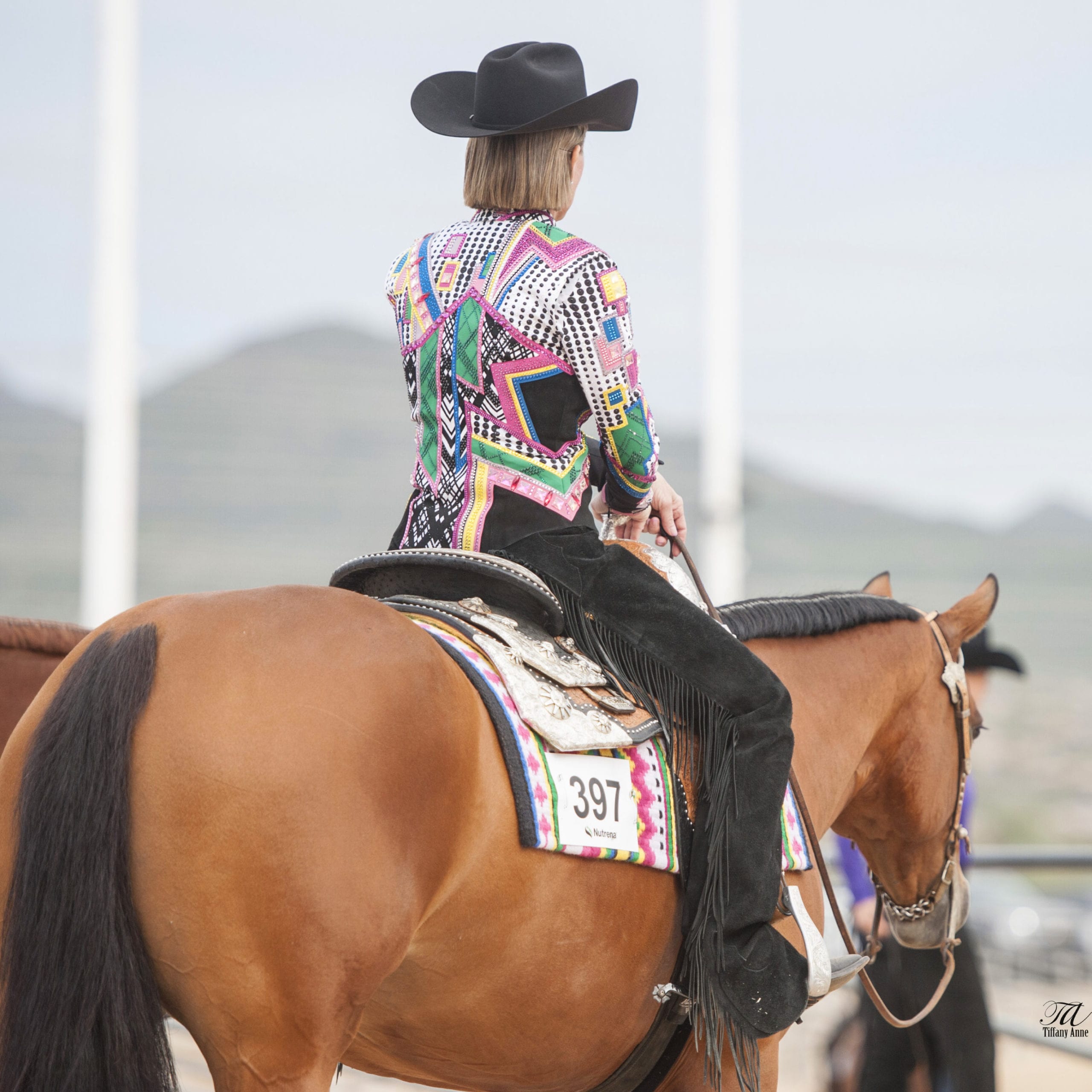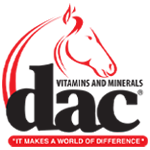According to AQHA, “The aim of the leveling program is to level the playing field, with the overall goal being to get more new people involved in showing their American Quarter Horses and drive the showing market in a strong direction.”
The different levels are calculated from a program that assigns exhibitors and horses to competition levels. AQHA states that the “handicapping system” is based on information from AQHA shows. According to the rules, level eligibility is determined by points and awards earned. Level point ranges are developed to combine horses and riders with the same experience.
Critics argue that the current ‘trophy for everyone’ mentality dilutes the prestige of winning an award, whereas others urge that leveling gets past exhibitors back into the show arena and encourages competitors to try new events.
With AQHA’s goals for the leveling program in mind, GoHorseShow asked several people in the industry whether they believe the program is working. Is it leveling the playing field?
Let us know what you think and vote in our poll at the end of the article.
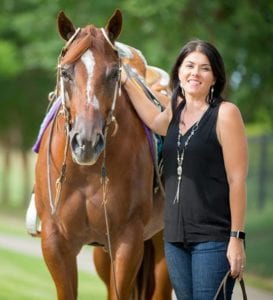 Jessica Wolf Hart – I think the intention of the leveling program is good. Focusing on helping people getting started in the industry. However, I feel that it has completely diluted it out for the active competitors. Novice classes historically have always been large (even before the leveling) but now the amateur classes are small making it very challenging to qualify. AQHA needs to help those “move up” as well. Perhaps offering cross over incentives or flat fees to encourage additional entries.
Jessica Wolf Hart – I think the intention of the leveling program is good. Focusing on helping people getting started in the industry. However, I feel that it has completely diluted it out for the active competitors. Novice classes historically have always been large (even before the leveling) but now the amateur classes are small making it very challenging to qualify. AQHA needs to help those “move up” as well. Perhaps offering cross over incentives or flat fees to encourage additional entries.
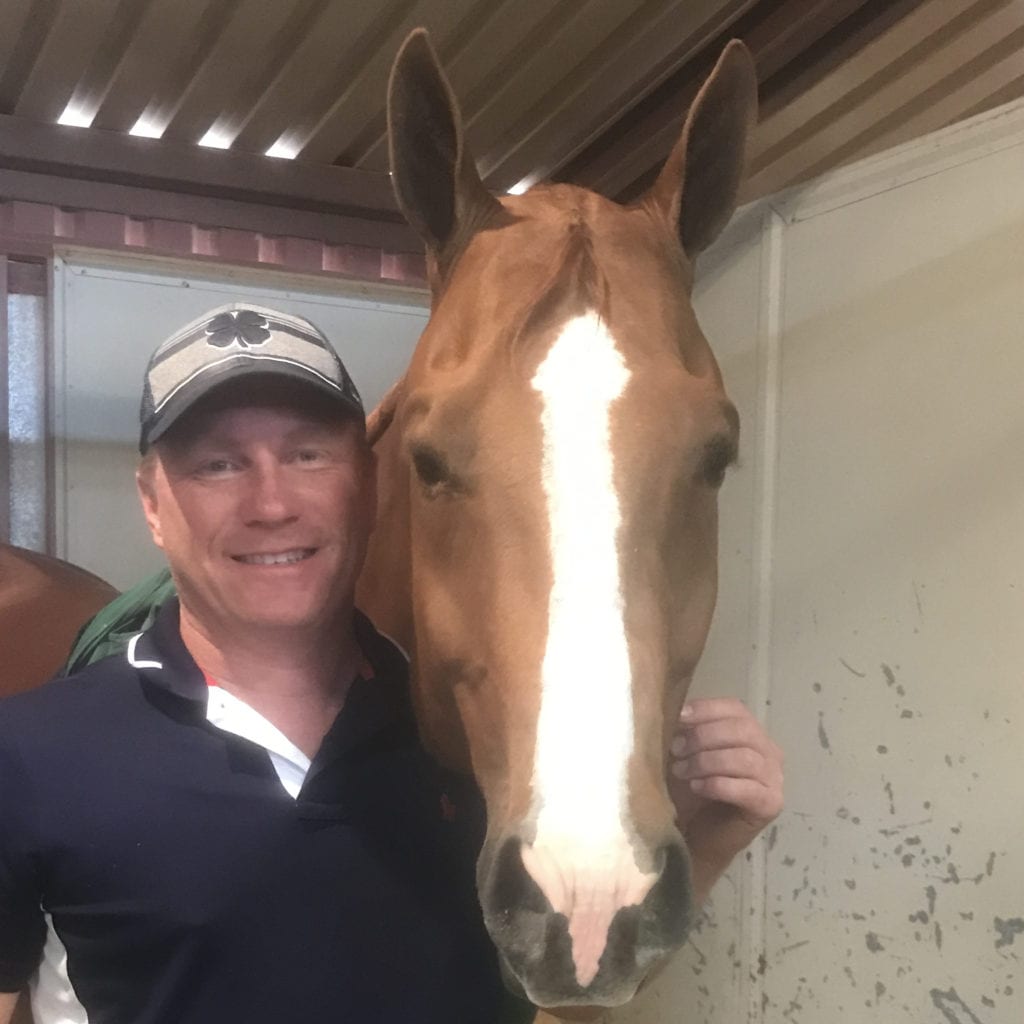 Scott Reinartz – I believe the leveling is a good thing. It allows horses and exhibitors an opportunity to compete within a class with similar skill sets. It takes away some of the intimidation, which encourages participation. I believe the challenge is with the connection to the point system. If the entries don’t support the leveling, it doesn’t pay to participate. I think it works well at shows with a lot of entries, but small shows it falls short.
Scott Reinartz – I believe the leveling is a good thing. It allows horses and exhibitors an opportunity to compete within a class with similar skill sets. It takes away some of the intimidation, which encourages participation. I believe the challenge is with the connection to the point system. If the entries don’t support the leveling, it doesn’t pay to participate. I think it works well at shows with a lot of entries, but small shows it falls short.
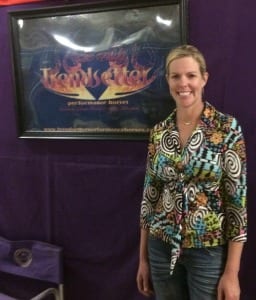 Kellie Hinely – I like the idea of leveling but I think that the L2 and L3 classes need to be held together. For example, if there are 20 horses in L2 western pleasure and 20 horses in L3 western pleasure and the class is run separately, the L3 class becomes an eight point class and the horse that won the class of 20, just got 8 points. When the class is run concurrently, I think that it’s a great plan, especially in the youth and amateur classes. It’s helping exhibitors showing in the L2 to gain the confidence with success and earn points at the same time.
Kellie Hinely – I like the idea of leveling but I think that the L2 and L3 classes need to be held together. For example, if there are 20 horses in L2 western pleasure and 20 horses in L3 western pleasure and the class is run separately, the L3 class becomes an eight point class and the horse that won the class of 20, just got 8 points. When the class is run concurrently, I think that it’s a great plan, especially in the youth and amateur classes. It’s helping exhibitors showing in the L2 to gain the confidence with success and earn points at the same time.
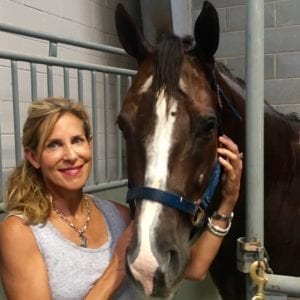 Kellie Morris – I am not an advocate of the leveling program. The novice category I feel addressed a void. I also feel the addition of the green category filled another void. Competition is about giving all you have and letting the chips fall where they may. Placing second to a better horse or performer is still winning. There is and always will be someone with a better horse, more money, etc ……that’s called life. The answer isn’t watering down the true nature of the sport.
Kellie Morris – I am not an advocate of the leveling program. The novice category I feel addressed a void. I also feel the addition of the green category filled another void. Competition is about giving all you have and letting the chips fall where they may. Placing second to a better horse or performer is still winning. There is and always will be someone with a better horse, more money, etc ……that’s called life. The answer isn’t watering down the true nature of the sport.
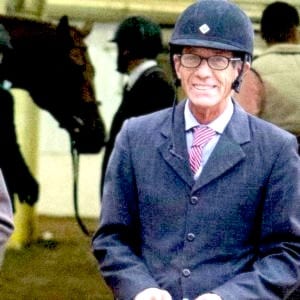 Jerry Erickson – Well, my observation is that leveling is not being embraced at regular shows both small and large. Perhaps it is in some divisions but not so in the English pen. That being said, I have observed great benefits for level 2 events at the open and amateur world show. The deserving winners and owners were thrilled. Along with that observation, in my opinion, the level 1 championship shows are also serving those exhibitions in a very positive manner.
Jerry Erickson – Well, my observation is that leveling is not being embraced at regular shows both small and large. Perhaps it is in some divisions but not so in the English pen. That being said, I have observed great benefits for level 2 events at the open and amateur world show. The deserving winners and owners were thrilled. Along with that observation, in my opinion, the level 1 championship shows are also serving those exhibitions in a very positive manner.
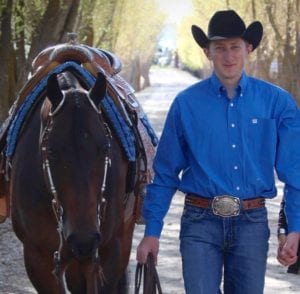 Holden Jung – I do believe that the leveling program is a good thing for our industry. It helps make it so everybody feels like they can compete and be successful in a class. I do feel that there needs to be some minor changes with the program. For example, I would like to see them base the leveling off of the rider rather than the horse in the open events. It would force the trainers to let their assistants show some of the horses in level 2 if the trainer didn’t feel like the horse was quite talented enough to be a level 3, creating more opportunities for the smaller trainers and assistants.
Holden Jung – I do believe that the leveling program is a good thing for our industry. It helps make it so everybody feels like they can compete and be successful in a class. I do feel that there needs to be some minor changes with the program. For example, I would like to see them base the leveling off of the rider rather than the horse in the open events. It would force the trainers to let their assistants show some of the horses in level 2 if the trainer didn’t feel like the horse was quite talented enough to be a level 3, creating more opportunities for the smaller trainers and assistants.
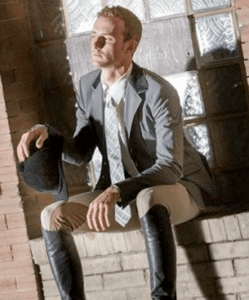 Julian Harris – The leveling program, I believe, is working well. It allows more up and coming trainers like myself to show in more classes with a greater chance of getting a prize. Although, I do believe it is a disadvantage for the trainers, amateurs, and youth that are really good because it limits their numbers. The amateur pleasure at the AQHA World Show didn’t even have a split. That’s scary.
Julian Harris – The leveling program, I believe, is working well. It allows more up and coming trainers like myself to show in more classes with a greater chance of getting a prize. Although, I do believe it is a disadvantage for the trainers, amateurs, and youth that are really good because it limits their numbers. The amateur pleasure at the AQHA World Show didn’t even have a split. That’s scary.
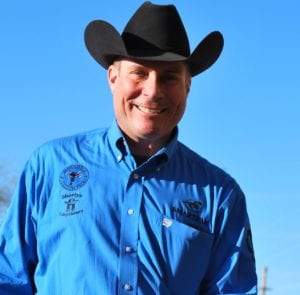 Charlie Cole – While I’m not a huge fan of the thought process of “leveling the field”, I do believe that the leveling system has had some benefits. It has motivated some exhibitors to show in classes they feel they were not competitive enough. Unfortunately, there still need to be some tweaking, especially when it comes to which exhibitors are eligible to show in the level 1 and level 2 classes.
Charlie Cole – While I’m not a huge fan of the thought process of “leveling the field”, I do believe that the leveling system has had some benefits. It has motivated some exhibitors to show in classes they feel they were not competitive enough. Unfortunately, there still need to be some tweaking, especially when it comes to which exhibitors are eligible to show in the level 1 and level 2 classes. Carli Pitts – I definitely think the leveling program is working. It is really helpful at the larger shows where the competition is tough, but you can enter in a Level 2 class and still receive points showing against other Level 2 riders/horses.
Carli Pitts – I definitely think the leveling program is working. It is really helpful at the larger shows where the competition is tough, but you can enter in a Level 2 class and still receive points showing against other Level 2 riders/horses.
 Julie Voge – For the shows I go to that are big, it works great. Prairie Classic and Redbud. But the small shows, no. I recently went to a smaller show with five head in the Junior Pleasure and someone changed from Level 2 to Level 3 at the last minute. I showed in Level 2 so there was just two of us. I ended up first and received no points.
Julie Voge – For the shows I go to that are big, it works great. Prairie Classic and Redbud. But the small shows, no. I recently went to a smaller show with five head in the Junior Pleasure and someone changed from Level 2 to Level 3 at the last minute. I showed in Level 2 so there was just two of us. I ended up first and received no points.
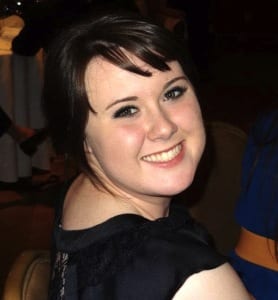 Bri Bielecki – I believe that the leveling program offers opportunities for horses and riders that need extra time in certain events without being in fear that ,they will novice out too quickly. I have pointed out in most events before the leveling program became in effect, with the exception of trail and western riding. I feel like those are two very difficult classes that require a lot of work, so I am very happy it allows me to continue being a novice for longer.
Bri Bielecki – I believe that the leveling program offers opportunities for horses and riders that need extra time in certain events without being in fear that ,they will novice out too quickly. I have pointed out in most events before the leveling program became in effect, with the exception of trail and western riding. I feel like those are two very difficult classes that require a lot of work, so I am very happy it allows me to continue being a novice for longer.
I try not to get too political, but before the leveling program, I saw many horses and riders that looked like they were too advanced to be competing in a novice level class. However, they legally could because they were novice based on the rules. I’ve been in the position that many horse and rider teams have been in where they feel out-shined or outdone by someone who clearly does not belong in a novice class.
Overall, I believe that AQHA is trying their best to fix these issues, and we understand that it is impossible to make everyone in the industry happy. Many people in the industry can afford a very nice horse, show clothes, and trainers and that alone can make it very difficultly to succeed in this particular industry. That is something that AQHA cannot fix, and I think they are aware of that.
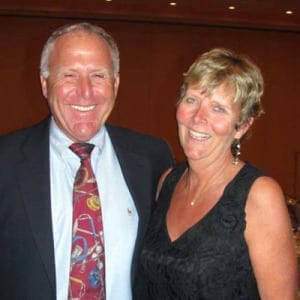 Larry Spratto – We have not been to many shows that offer the leveling program. I can see both sides, it has not been a reason for our group to seek out a particular show or circuit.
Larry Spratto – We have not been to many shows that offer the leveling program. I can see both sides, it has not been a reason for our group to seek out a particular show or circuit.
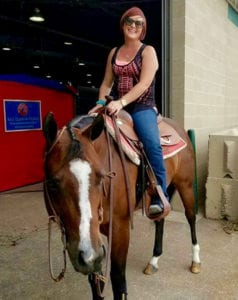 Andrea Kail – I absolutely 150% believe it’s working. I think it’s a great idea. I believe in it because before the Level 2, it was very hard for a person that just pointed out of say the Novice Amateur Western Riding, to then go compete against all the amazing Amateur western riders that have been doing this for years and years. A very tough feat to say the least. I feel like those are the things that get people frustrated and make them not want to do it anymore. With the leveling, this gives those exhibitors a place to grow and learn without competing against the “old pros” of the showing world and definitely keeps it more fair.
Andrea Kail – I absolutely 150% believe it’s working. I think it’s a great idea. I believe in it because before the Level 2, it was very hard for a person that just pointed out of say the Novice Amateur Western Riding, to then go compete against all the amazing Amateur western riders that have been doing this for years and years. A very tough feat to say the least. I feel like those are the things that get people frustrated and make them not want to do it anymore. With the leveling, this gives those exhibitors a place to grow and learn without competing against the “old pros” of the showing world and definitely keeps it more fair.
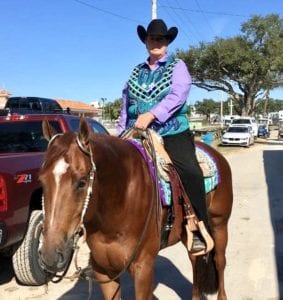 Joanne Garnett – I am not particularly a fan of leveling. If you are going to level the amateur, the horses should be leveled and not the people. It is hard to be a level three rider and show a young horse against finished horses that are older. I also think they should move the level 2 championship to maybe the same time as the level 1 championships. I think the world show should get back to being for the level three and preserving the prestige of it. I think the leveling has hurt the AQHA Incentive Fund by the increased number of horses earning more points. I think the leveling provides a place for horses to show that aren’t level three horses, but I’m not sure I would say it is leveling the playing field.
Joanne Garnett – I am not particularly a fan of leveling. If you are going to level the amateur, the horses should be leveled and not the people. It is hard to be a level three rider and show a young horse against finished horses that are older. I also think they should move the level 2 championship to maybe the same time as the level 1 championships. I think the world show should get back to being for the level three and preserving the prestige of it. I think the leveling has hurt the AQHA Incentive Fund by the increased number of horses earning more points. I think the leveling provides a place for horses to show that aren’t level three horses, but I’m not sure I would say it is leveling the playing field.
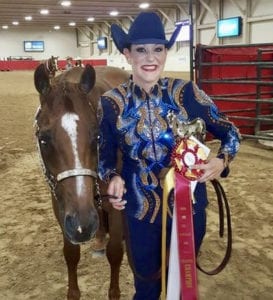 Julie Hoefling – Yes, I do believe the leveling program is working. I started showing again after a 15 year break and the novice program was a great introduction back into showing. I am now in my last year in the Level 1 Western Pleasure and have the confidence and experience I need to move up to Level 2. There are other classes where both my horse and myself are green and still learning, so I appreciate that I can show against competitors with similar experience levels in the Level 1. Any program always has its pros and cons, and it is a tall task to please everyone. However, I do think the leveling program has “leveled the playing field” so to speak as best as it can.
Julie Hoefling – Yes, I do believe the leveling program is working. I started showing again after a 15 year break and the novice program was a great introduction back into showing. I am now in my last year in the Level 1 Western Pleasure and have the confidence and experience I need to move up to Level 2. There are other classes where both my horse and myself are green and still learning, so I appreciate that I can show against competitors with similar experience levels in the Level 1. Any program always has its pros and cons, and it is a tall task to please everyone. However, I do think the leveling program has “leveled the playing field” so to speak as best as it can.
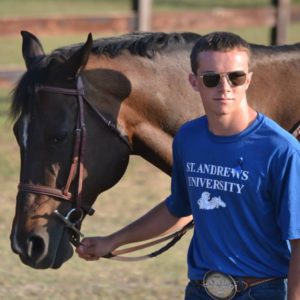 Mark Mowbray – I personally do believe the AQHA Leveling Program is working. With any new initiative or program, it takes a few years to see the purpose and results match. Though at its conception, it did not seem like any significant difference was made, numerous competitors found new divisions to exhibit their horses. On paper, the program invites members who may have not been competing or participating in AQHA shows to make a return to the show pen. I do believe that in the coming years, we will see a more transparent change in shows. However, when seasoned exhibitors/horses are showing in these divisions, it does discourage the more novice exhibitors and prevents them from having trust in the program.
Mark Mowbray – I personally do believe the AQHA Leveling Program is working. With any new initiative or program, it takes a few years to see the purpose and results match. Though at its conception, it did not seem like any significant difference was made, numerous competitors found new divisions to exhibit their horses. On paper, the program invites members who may have not been competing or participating in AQHA shows to make a return to the show pen. I do believe that in the coming years, we will see a more transparent change in shows. However, when seasoned exhibitors/horses are showing in these divisions, it does discourage the more novice exhibitors and prevents them from having trust in the program.
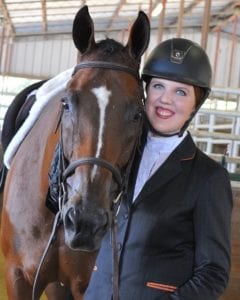 Ariel Herrin – I think the leveling system is an excellent idea. The problem I have with it, though, is how rarely it is used. At the really big shows, it is being used, but I have shown at one show this year that offered the level two classes. I get that it is difficult on the secretarial/announcer side, but it’s hard for me to say I see a lot of benefit for it if it’s really only used at the big shows and the world show. I think people are a little afraid of it because it is complex to understand, but if it is not implemented at all shows, it will never reach the people it is set out to benefit.
Ariel Herrin – I think the leveling system is an excellent idea. The problem I have with it, though, is how rarely it is used. At the really big shows, it is being used, but I have shown at one show this year that offered the level two classes. I get that it is difficult on the secretarial/announcer side, but it’s hard for me to say I see a lot of benefit for it if it’s really only used at the big shows and the world show. I think people are a little afraid of it because it is complex to understand, but if it is not implemented at all shows, it will never reach the people it is set out to benefit.
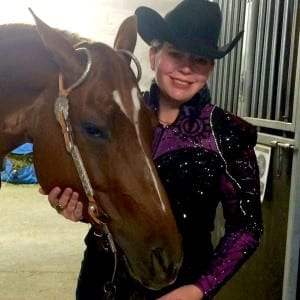 Hilary Reinhard – I think that, overall, leveling has been a great idea. Other associations such as team roping, barrel racing and reining have developed multi-level programs and their events have grown because of them. Also, competitors don’t always maintain an upward trajectory with their competitiveness. Returning to the show pen after years off can be daunting and frustrating. Leveling provides some ability for competitors that were successful in their past and are no longer eligible for novice a more welcoming return. I’ve heard the argument from people who used to compete, but no longer do, that leveling dilutes the wins. But, the amount of talent in today’s horses makes purchasing a horse that can compete at the highest levels in many classes difficult. Leveling helps give people a spot to compete at the larger circuits.
Hilary Reinhard – I think that, overall, leveling has been a great idea. Other associations such as team roping, barrel racing and reining have developed multi-level programs and their events have grown because of them. Also, competitors don’t always maintain an upward trajectory with their competitiveness. Returning to the show pen after years off can be daunting and frustrating. Leveling provides some ability for competitors that were successful in their past and are no longer eligible for novice a more welcoming return. I’ve heard the argument from people who used to compete, but no longer do, that leveling dilutes the wins. But, the amount of talent in today’s horses makes purchasing a horse that can compete at the highest levels in many classes difficult. Leveling helps give people a spot to compete at the larger circuits.
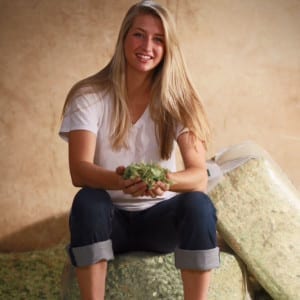 Carey Nowacek – I do believe the AQHA Leveling program is in fact leveling the playing field. I know it has been a tough adjustment and hard to understand for some, but I think in time it will be great. Having the different levels give exhibitors a chance to compete with others on their same “level.” Whether you have taken a step back from showing for a few years or are just starting your showing career, there is a place for everyone.
Carey Nowacek – I do believe the AQHA Leveling program is in fact leveling the playing field. I know it has been a tough adjustment and hard to understand for some, but I think in time it will be great. Having the different levels give exhibitors a chance to compete with others on their same “level.” Whether you have taken a step back from showing for a few years or are just starting your showing career, there is a place for everyone.
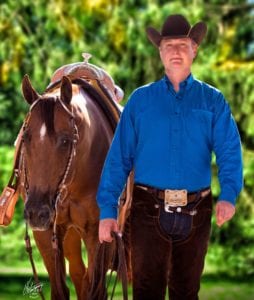 Jason Wanderer– I am a major advocate for the AQHA Leveling program as I believe it has successfully created a positive growth space between the Novice and full Youth/Amateur divisions as well as the Green and Junior/Senior divisions. A suggestion I have for the program is to eliminate open horses as well as youth and amateur riders who have been Level 2 Champions at the AQHA from participating in Level 2 in that class in the future. In addition, I would encourage shows to evaluate specific classes to be leveled based on prior or projected participation rather than leveling all classes at the show.
Jason Wanderer– I am a major advocate for the AQHA Leveling program as I believe it has successfully created a positive growth space between the Novice and full Youth/Amateur divisions as well as the Green and Junior/Senior divisions. A suggestion I have for the program is to eliminate open horses as well as youth and amateur riders who have been Level 2 Champions at the AQHA from participating in Level 2 in that class in the future. In addition, I would encourage shows to evaluate specific classes to be leveled based on prior or projected participation rather than leveling all classes at the show.
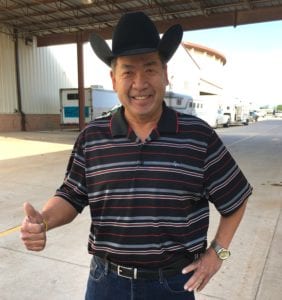 Tim Kimura – When its leveled, the junior division promotes the greener junior horses to show twice. Showing level 2 feels like they are not over matched by the advanced level 3 horses. These horses need to show more to get more experience in the pen. Furthermore, a junior horse that moves to the senior division and shows in the level 2 senior can be competitive in the level 2 class and still get points to get qualified.
Tim Kimura – When its leveled, the junior division promotes the greener junior horses to show twice. Showing level 2 feels like they are not over matched by the advanced level 3 horses. These horses need to show more to get more experience in the pen. Furthermore, a junior horse that moves to the senior division and shows in the level 2 senior can be competitive in the level 2 class and still get points to get qualified.
I’m not sure what the rule is for 2017, but if a level 2 rider still has to show a level 2 horse at the world show, I think this is where there might be a need for change. It seems like the rider is never the question when showing the horse in level 2 trail during the qualifying period. However, at the world show, a level 2 rider is needed to show in that level 2 trail class.
Due to this rule at the AQHA World Show, you must explain to your owner that we need a catch rider for your horse at the biggest event your horse is going to show at all year long. Not sure that’s the best method. Also, in trail, I’d rather the level 2 horses show in a class by themselves and make people commit to level two or level 3 and not both.
CLICK HERE to read a related article from AQHA about eliminating the leveling at the Level 1 Championships
What do you think? Vote in our poll and let us know if you think the program is working.


